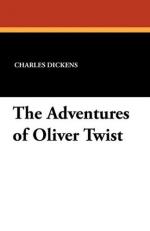|
This section contains 623 words (approx. 2 pages at 400 words per page) |

|
Oliver Twist had a twofold moral purpose: to exhibit the evil working of the Poor Law Act, and to give a faithful picture of the life of thieves in London. The motives hung well together, for in Dickens's view the pauper system was directly responsible for a great deal of crime. It must be remembered that, by the new Act of 1834, outdoor sustenance was as much as possible done away with, paupers being henceforth relieved only on condition of their entering a workhouse, while the workhouse life was made thoroughly uninviting, among other things by the separation of husbands and wives, and parents and children. Against this seemingly harsh treatment of a helpless class Dickens is very bitter; he regards such legislation as the outcome of coldblooded theory, evolved by well-to-do persons of the privileged caste, who neither perceive nor care about the result of their system...
|
This section contains 623 words (approx. 2 pages at 400 words per page) |

|




